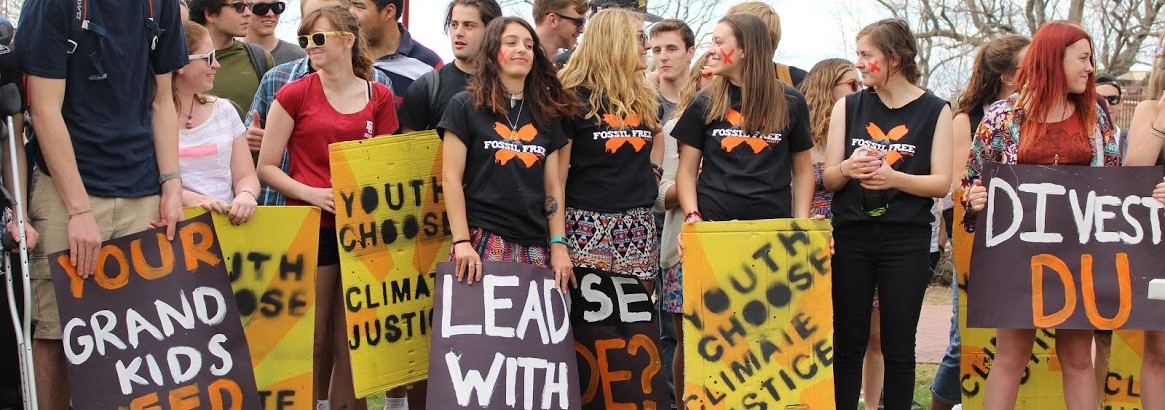Did you know that the University of Denver is holding hearings to consider divesting the university endowment of fossil fuel investments? Not many do. But it’s a big deal because this decision could directly impact millions of dollars of financial aid for DU students. Students against divestment have not been invited to speak to the board thus far, so I am making my voice heard here.
Over the summer, the DU Board of Trustees established a divestment task force in a response to demands from the group Divest DU, which claims that ditching these investments would foster a “socially responsible endowment.” Funded by the national anti-fossil fuel organization 350.org, the divestment campaign is prioritizing a political crusade above meaningful climate action, student financial aid and the important role of oil and gas development in Colorado’s economy. This is the same group currently working to shut down Colorado’s oil and gas industry through ballot measures.
As I learned from attending one of the divestment forums, DU’s endowment primarily funds our scholarships, fellowships and academic programs. Currently, our endowment amount per student is about $65,000, which is well below the national average of $108,000. Divesting from $22 million in fossil fuel investments would impost costly new fees in the form of transaction and management costs and lost diversification benefits for the endowment.
Divesting also ignores the industry’s role in supporting our economy and environment. Natural gas, for example, is the ideal energy source to rapidly supplement intermittent wind and solar power.
EPA Administrator Gina McCarthy has stated that “natural gas has been a game changer with our ability to really move forward with pollution reductions.” That’s why Bill Gates calls divestment a “false solution” that distracts from real actions to address climate change. Fossil fuels aren’t a roadblock to innovative energy solutions–they work together with renewables and support their growth.
Universities have overwhelmingly rejected divestment. Here in Colorado, Fort Lewis College and the University of Colorado both decided against it. They join schools like Harvard, Columbia and New York University in saying no to this political campaign. Harvard President Drew Faust explained there is “a troubling inconsistency in the notion that, as an investor, we should boycott a whole class of companies at the same time that, as individuals and as a community, we are extensively relying on” every day.
Some claim divestment is a moral action. This notion, however, fails to recognize the ineffectiveness of divestment while ignoring the costs such a decision can impose.
Is it socially responsible to take long-term funding away from students without having a long-term impact on the environment? The cost of divesting, through fees and lost returns, limits the ingenuity and growth within our student body far more than it impacts the environment. Through robust funding that enables the best and brightest minds to attend DU, we can continue to pioneer creative solutions that leverage all forms of energy to address climate change.
Jenna Schmitt is an MBA candidate (2017) in the Daniels College of Business and a communications professional for the energy, public health, and education sectors.











